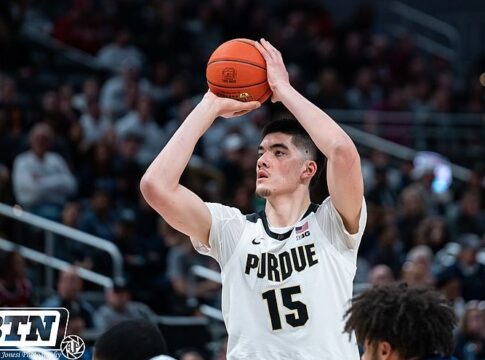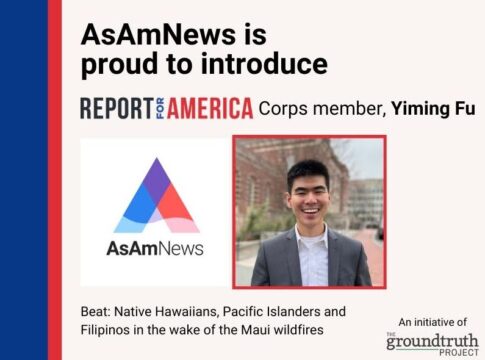By Eric Chang
Tani Cantil-Sakauye is the daughter of Filipino farmworkers and a former blackjack dealer. She is also the Chief Justice of the California Supreme Court – a job that she never even applied for.
“I was surprised as anyone to be selected,” Justice Cantil-Sakauye recounts.
On Saturday, November 13, she’ll be one of 10 inductees into the Asian Hall of Fame.
Established in 2004, The Asian Hall of Fame is the premier global organization of Asian excellence, cultural unity, and inter-racial equity. Asian Hall of Fame advocates for 4 billion Asians, AAPI, native and indigenous tribes worldwide.
LATEST STORIES
Inductees are honored for their legacy, philanthropy, and cultural impact.
The Chief Justice has served for more than 20 years on California appellate and trial courts and has been appointed or elevated to higher office by three governors. In addition to serving as Chief Justice, she oversees a state-wide judiciary that includes more than 1,700 judges, hundreds of other judicial officers, and over 21,000 court employees.
AsAmNews recently spoke with Justice Cantil-Sakauye about her experiences growing up as Asian American, her career, and navigating the role of being a role model and mentor to others. This conversation has been edited for clarity and length.
Chief Justice, thank you for taking the time to sit down with me. It’s an honor to speak with you. You are the 28th chief justice of the State of California. The first Asian Filipina American and the second woman to serve as the state’s Chief Justice. I’d love to start with your background. What was your childhood like?
Thank you, Eric. I come from a large Filipino family and so my childhood was always quite active with a lot of people. Aunts and uncles, siblings and cousins. In my early years, my parents worked as farmworkers. So many of my early memories involve going with them to the tomato fields to pick tomatoes. I can still smell the acrid, sulphury smell of tomatoes and biting into them. I’m sure that as a child, I was of no real assistance, but my parents dragged all of us there and we picked nonetheless.
The Filipino community of farmworkers in Sacramento, Stockton, San Joaquin, and Yuba were all pretty close-knit too. So, we would always have various fruits and vegetables dropped off at our house because all the Filipinos shared. We were a tight community and we didn’t socialize very much outside of our community.
You grew up in Sacramento, California, right?
Yes, I grew up living in a house next to my grandmother behind a fence in an alley in downtown Sacramento, next to a house that I later came out to understand was a brothel. I lived there until I was about 9 and then redevelopment came and kicked us out of our home and so we moved. We moved to a neighborhood and we were the first non-white family there.
What was it like going from a predominantly Filipino community to being in the only non-white family in a neighborhood?
As a 10-year-old child, I didn’t notice it. I knew I was different and that people had things that I didn’t have, but all the kids were still the same to me. We all played in the street, we all grew up together, and I’m still really good friends with a lot of those kids.
But one thing that I didn’t know about was the concept of opportunity. It was something you heard about but not something I understood. Nobody spoke to me about college when I was in high school. Counselors didn’t tell me to apply. Therefore, I just sort of fumbled my way through it. After high school, I went to a local community college because that’s where I saw people going. It wasn’t until community college that an instructor told me, “you can be anything you want.” It encouraged me to think about law school and pursue things that I was afraid of.
After law school, your first job was as a prosecutor. How did you come to that role and was that something you always wanted to do?
No. When I went to law school, I didn’t know a single Filipino lawyer. I liked education and I was good at it but I had no real idea of what the practice of law was like. They didn’t have Bar Associations reaching out to students as they do now. So, I graduated from law school without any job prospects and just happened to become a prosecutor in a local district attorney’s office.
However, I was sent to the courtroom and found my first love.
I love being in a courtroom.
Oh, I can definitely relate to that. I’m currently an antitrust prosecutor with the California Justice Department but prior to this, I was a federal criminal prosecutor. I also didn’t know how much I would enjoy the courtroom experience until I became a prosecutor too.
I don’t get the opportunity to see the inside of a courtroom as much anymore and I miss it.
Absolutely. What was your college major to be an antitrust lawyer? Were you a science major?
I was an economics major. I actually double majored in economics and Asian American Studies. In college, my professional interest was in economics but my personal interests were in civil rights and social justice. My interests have broadened since then but to some degree, that’s still the case.
So, after being a prosecutor, you became a judge at various levels: the trial court, the appellate court, and then California Supreme Court. At what point in your career did you start to think these things were possible?
I never thought the California Supreme Court was possible. I was always so fulfilled by my current jobs that I never really thought about the end game. But, being in Sacramento as an assistant district attorney gave me the opportunity to work for Governor Deukmejian in 1988. I had the opportunity to work in his inner cabinet and work with his close advisors. My entire world blew up at that point.
I was able to sit in high-level policy meetings with his closest advisors. I was an attorney in his legal department, but there were only two of us and so I began to see the law in an entirely different way. After Governor Deukmejian decided not to run for reelection, I had the option of becoming a lobbyist or joining the Courts. I chose the Courts because that was my first love. And so, in 1990, when George Deukmejian retired from public office, I went to the Courts. It was a homecoming for me in many ways, I was back in Sacramento. The only difference was that I was overruling and sustaining the objections of my former colleagues.
Judges and the judiciary don’t care about the politics of the governor or the legislature because we interpret the law. We’re not privy to policy and don’t weigh in on the wisdom.
I was fortunate to be a judge under three Republican governors who promoted me. George Deukmejian put me on the bench. Pete Wilson elevated me to the Superior Court. Governor Schwarzenegger elevated me to the Court of Appeal and named me Chief Justice. So, I was fortunate in that regard because they saw me as a known quantity.
I never applied to be Chief Justice. There was an opening and they asked me to come interview. I was surprised as anyone to be selected.

When you step back and look at your career as a whole, what are the key influences or factors that shaped your career?
Certainly a combination of different things but I’ll start by saying, working in the community. I’m still very close to all my Filipino aunties and uncles and that community. Being in that environment, you learn and get a better understanding of what’s happening on the ground around you. I just recently went to the Sacramento Filipino American Lawyer’s Association dinner and it felt like home.
I’ve also always been involved in the Asian Bar Association, the Filipino Bar Association, the Women Lawyers’ Associations.
Lastly, just doing the work. Everyone who wants something has to put in the work. I spent 14 years in the trial courts before I went to the Court of Appeal. 14 years for some people is their whole career. But I spent 14 years doing trials and motions and plea negotiations. Then I spent six years on the Court of Appeal where I received the work of my colleagues and I was introduced to a whole different level of thinking about the law. So, no matter what you do, you have to put in the work and show up every day.
When you got to the bench, and even now, do you miss the advocacy aspect of being a lawyer?
Oh, yes. That’s the hardest part. I found that to be an uncomfortable fit for years. I’d always have to find a way not to be an advocate. I would take copious notes and then cite all of my objections and strategies in the margins so I could stay active without being an advocate.
Later on, I realized that my role is more important. It’s more important to let the advocates perform at their highest levels under the law and step back and be a part of the framework. I’m not in the arena but I set the arena so that everyone else is able to do what they need to do.
I’ll also add that if you become a judge, you can still be an advocate in different ways. I’m an advocate when I go to the legislature or Governor Newsom. I advocate for the judiciary, for fair funding, for stable funding or fair fees, or ending onerous practices. So it’s a different kind of advocacy and behalf of everyone, as opposed to one side.
From your vantage point, what are some of the challenges facing the Asian American legal community?
First, not enough Asian Americans consider going to law school and pursuing law as a career.
Second, while Asian Americans are entering law school in greater numbers than ever before but there’s still an implicit bias against Asian Americans. We are still not in the top echelon of the best firms – when we should be. We’re not at the top levels of government leadership – when we should be. We are not in the places where our skill or merit entitle us to be. I think about this, and I joke with you, but I’ve always thought about writing a book that says “Overlooked, underestimated, and interrupted,” because there is sometimes this implicit bias applied against Asian Americans. We are not thought of in the first instance to lead or be on a Board.
For instance, how come nobody complains about the lack of Asian American representation in the U.S. Supreme Court? We’re one of the fastest-growing minority groups. We’re a huge population of the universities, workforces, and we have a long history in the United States and yet I’ve never heard anyone say, “We should probably get an Asian American on the Supreme Court.” I’m not advocating for myself. I’m too old and I don’t want to go there. But, I know a lot of strong, solid, Asian Americans who should be considered and it should be a topic of discussion.
I don’t exactly understand why that is but it’s still a challenge to be seen. I don’t understand exactly why that is.
What are the one or two personal characteristics that you would attribute your professional success to?
That’s a good question. I don’t give up. My husband says that’s not a good thing but if I hear no, I’ll always find another way to do it. I also don’t forget either. If I hear a no today, I’ll still look for a “yes” tomorrow.
I also grew up in a large Filipino family and in that space, I learned to listen and see things that others may have missed. As a trial attorney, it served me well to be able to see and hear things and use those things in cross-examination.
That concept of never giving up reminds me a lot of an old Chinese phrase, “Chi Ku.” The literal translation means to “eat bitter” and it refers to the character trait of being able to roll with the punches and overcome trials or hardship in order to reach a goal. It’s a phrase that still continues to have a lot of effect in Chinese culture and society, even here in the United States. I heard it all the time growing up.
Interesting. I’ve never heard that phrase but I like it.
I know we’re almost out of time, but I wanted to end with one final question. I know that you used to be a blackjack dealer. What do you think that you’ve learned from being a blackjack dealer that you still apply to the practice of law today?
I was a blackjack dealer because I could get a paying job in law school. So I dealt blackjack at Harris in Lake Tahoe. What I learned then and what I keep until today is that people can bluff or be fake in all sorts of situations. I watched people jockey for position, pretending to be drunk, counting cards. With card counters, I know they have a friend in the back waiting for a signal to come and drop a huge stack of chips. The chips are always going to be mixed and they’re going to pretend to be drunk and push their stack at the right time.
When I first became a lawyer, I didn’t know that side of people. I only knew my family and my circle of friends. The blackjack dealing experience help me with witnesses, pick better juries, and it helped me discern when people were talking to me: what was the truth, and what I should question.
Great answer. Well thought out and I can tell you’ve thought about that before. It makes me want to be a blackjack dealer too. Chief Justice, we are all out of time. Thank you so much for your time.
I really enjoyed talking to you and thank you for the thoughtful questions. I know that you recently became a new dad and it warms my heart to hear the baby noises in the background. I know you must be very busy as a result and so thank you for taking the time to talk with me.
The pleasure is all mine. It’s been an absolute honor and I know no better way than to end this like a deposition. The time is 11:01 and we are off the record.
Eric J. Chang is a guest contributor for AsAmNews. He is a Deputy Attorney General for the California Department of Justice. Any views expressed are his own.
AsAmNews has Asian America in its heart. We’re an all-volunteer effort of dedicated staff and interns. Check out our new Instagram account. Go to our Twitter feed and Facebook page for more content. Please consider interning, joining our staff, or submitting a story, or making a contribution.








